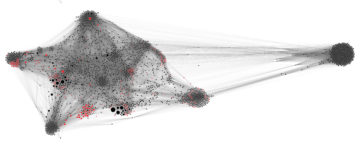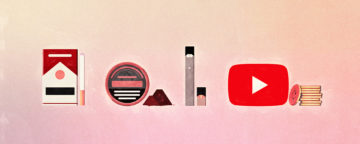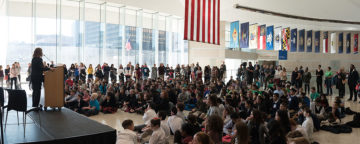iCivics and APPC have rereleased two free online games, Branches of Power and Court Quest, designed to help educators and parents teach students about the federal government.


iCivics and APPC have rereleased two free online games, Branches of Power and Court Quest, designed to help educators and parents teach students about the federal government.

APPC director Kathleen Hall Jamieson was awarded the 2020 Public Welfare Medal from the National Academy of Sciences during a virtual ceremony.

Users of conservative or social media in the early days of the COVID-19 outbreak were more likely to be misinformed about how to prevent the virus and believe conspiracy theories about it.

In the 2016 election cycle, Russian Twitter trolls sent targeted pro- and anti-vaccination tweets via various fake persona types, poisoning the kind of crisis communications that may be critical today in the coronavirus pandemic.

Enforcing transparency requirements on digital platforms would be less threatening to free speech rights than regulating harmful content, an analysis finds.

Misleading videos about tobacco use are widespread on YouTube, where views of popular pro-tobacco videos have soared in recent years, a study from the Annenberg Public Policy Center finds.

People who rely on social media for information were more likely to be misinformed about vaccines than those who rely on traditional media, according to new research by the Annenberg Public Policy Center.

APPC Director Kathleen Hall Jamieson will receive the National Academy of Sciences' 2020 Public Welfare Medal for her nonpartisan crusade to ensure the integrity of facts in public discourse.

Contrary to a 2019 study, a data reanalysis found no evidence of an increase in adolescent suicide rates after the release of Netflix's "13 Reasons Why."

In its sixth annual Citizenship Challenge, the Rendell Center asked fourth and fifth graders which Amendment in the Bill of Rights was most important and impactful.